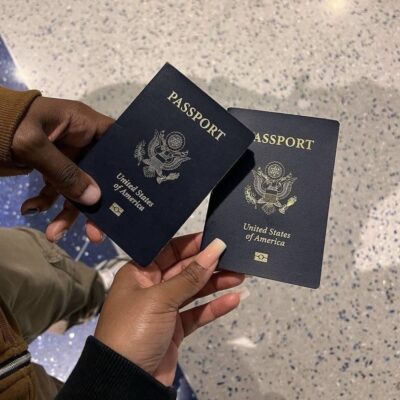Moving to Canada as a spouse of a citizen or permanent resident is a dream for many couples. The Canadian government, through its spousal sponsorship program, makes it possible for married couples to reunite and build a life together in one of the most welcoming countries in the world.
Obtaining a marriage visa requires attention to detail, thorough documentation, and adherence to legal requirements. In this guide, we’ll explore 10 effective ways to navigate this process successfully.
Results
#1. Which field are you looking for a job in?
#2. How many years of experience do you have in your field?
#3. What is your current employment status?
#4. Do you have a valid work permit or visa for Canada?
#5. Are you willing to relocate to any province in Canada?
#6. What is your highest level of education?
From eligibility criteria to post-application steps, this article covers all you need to know to get started.
1. Understand the Spousal Sponsorship Program
The spousal sponsorship program is a pathway for Canadian citizens and permanent residents to sponsor their spouses or common-law partners for permanent residency.
This program emphasizes family reunification and supports both opposite-sex and same-sex marriages.
Key details include:
- Financial Responsibility: Sponsors agree to financially support their spouses for three years after obtaining permanent residency.
- Relationship Verification: Immigration, Refugees, and Citizenship Canada (IRCC) thoroughly reviews applications to ensure the relationship is genuine.
- Eligibility of Sponsored Partners: The sponsored partner must not be inadmissible to Canada due to medical, criminal, or security reasons.
- Understanding the program’s framework sets the stage for a successful application.
2. Prove the Authenticity of Your Marriage
Canadian immigration authorities take relationship fraud seriously. They will carefully evaluate whether your relationship is genuine and not solely for immigration purposes.
How to Prove a Genuine Relationship:
1. Document Your Marriage:
- Provide a valid marriage certificate.
- Submit photos of your wedding, showing family and friends present.
2. Show Evidence of Communication:
Submit Your Applications
- Chat logs, email exchanges, and call records.
- Letters or cards exchanged between you and your spouse.
3. Demonstrate Shared Responsibilities:
- Joint bank accounts, shared leases, or property ownership.
- Evidence of shared travel or future plans.
4. Affidavits from Family or Friends:
- Statements from close relatives or friends attesting to the authenticity of your relationship.
- A well-documented application can avoid delays and rejections.
3. Verify Eligibility Requirements
Both the sponsor and the sponsored spouse must meet specific eligibility criteria.
Sponsor Requirements:
- Must be a Canadian citizen, permanent resident, or person registered under the Indian Act.
- Be at least 18 years old.
- Demonstrate financial stability and not rely on social assistance (except for disability reasons).
- Cannot have sponsored another spouse within the last five years.
Sponsored Spouse Requirements:
- Must be legally married to the sponsor.
- Be at least 18 years old.
- Pass medical, criminal, and security screenings.
Pro Tip: Thoroughly review the IRCC website or consult an immigration expert to ensure you meet all conditions.
4. Choose the Right Sponsorship Type: Inland vs. Outland
Deciding whether to apply for inland sponsorship or outland sponsorship depends on your living situation.
Inland Sponsorship:
- The spouse being sponsored resides in Canada during the application process.
- Allows the applicant to apply for an Open Work Permit while waiting for permanent residency.
- Travel outside Canada may be restricted.
Outland Sponsorship:
- The sponsored spouse lives outside Canada.
- Applications are processed through the visa office in the spouse’s home country.
- Allows travel in and out of Canada during the process.
Tip: Inland sponsorship is suitable for spouses already in Canada, while outland sponsorship is ideal for those living abroad.
5. Prepare a Complete Application Package
The application package is the cornerstone of the marriage visa process. It includes forms, documents, and fees that must be submitted to IRCC.
Required Forms and Documents:
- Sponsorship Application (IMM 1344)
- Generic Application Form for Canada (IMM 0008)
- Proof of marriage, such as marriage certificates and photos.
- Police certificates from all countries where the spouse lived for six months or more.
- Medical examination results conducted by an approved physician.
- Proof of financial support, such as income tax returns or pay stubs.
Important: Double-check all forms and documents for accuracy before submission.
6. Budget for the Costs
Applying for a marriage visa comes with associated fees. Budgeting for these costs ensures a smoother process.
Table: Breakdown of Costs for a Marriage Visa
Expense Cost (CAD)
Sponsorship Processing Fee $75
Principal Applicant Fee $570
Right of Permanent Residence Fee $515
Biometrics Fee $85
Medical Examination $250
Police Clearance Certificates $75
Total Estimated Cost: $1,570
These fees must be paid at various stages, and failure to pay promptly may delay the application.
7. Pass Medical and Security Screenings
To protect public health and safety, Canada requires applicants to pass medical and security screenings.
Medical Examination:
- Conducted by an IRCC-approved physician.
- Includes a physical exam, blood tests, and chest X-rays.
Security Screening:
- Police certificates from all countries where the applicant has lived since age 18 are mandatory.
- IRCC may perform additional background checks.
Tip: Schedule your medical exam early to avoid delays.
8. Address Common Application Mistakes
Many applications are delayed or denied due to avoidable errors. Here are common mistakes and how to avoid them:
- Incomplete Forms: Ensure all forms are complete and signed.
- Missing Evidence: Provide comprehensive proof of your relationship.
- Incorrect Fees: Confirm the total fees before payment.
- Failure to Translate Documents: Include certified translations for documents not in English or French.
Attention to detail can prevent costly setbacks.
9. Consider Seeking Professional Assistance
If you find the process overwhelming, consider hiring an immigration lawyer or a regulated consultant.
Benefits of Professional Guidance:
- Expert knowledge of IRCC requirements.
- Assistance with complex cases, such as prior sponsorship refusals.
- Help with organizing and submitting documents.
- Choose a professional registered with the College of Immigration and Citizenship Consultants (CICC) for reliable assistance.
10. Prepare for the Interview (if Required)
In some cases, IRCC may require an interview to assess the authenticity of your relationship.
Tips for a Successful Interview:
- Be honest and consistent in your answers.
- Prepare for personal questions about your relationship, such as: How did you meet? What do you know about your spouse’s family? What are your future plans together?
- Bring additional evidence of your relationship, such as recent photos or correspondence.
The interview is an opportunity to reinforce the authenticity of your relationship.
FAQs on 10 Ways To Get Marriage Visa In Canada
Can I appeal if my application is denied?
Yes, you can appeal a refusal through the Immigration Appeal Division (IAD) if you believe the decision was incorrect. Consult a lawyer for guidance on the appeals process.
How long does the spousal sponsorship process take?
Processing times vary but typically range from 12 to 18 months, depending on the application stream and the complexity of your case.
Can I sponsor my spouse if I am unemployed?
Yes, unemployment does not disqualify you from sponsoring your spouse. However, you must demonstrate that you are not receiving social assistance (except for disability benefits) and can meet financial obligations.
Can my spouse work in Canada during the application process?
Inland applicants can apply for an Open Work Permit, allowing them to work while waiting for their permanent residency decision.
What happens if my spouse is inadmissible?
If the sponsored spouse is deemed inadmissible (due to medical or security issues), the application will be rejected. However, you may seek a Temporary Resident Permit (TRP) in certain cases.
Can I sponsor my spouse if we’ve been married for less than a year?
Yes, there is no minimum marriage duration requirement for spousal sponsorship. However, ensure your relationship is genuine and well-documented.
Is common-law sponsorship different from marriage sponsorship?
No, both programs fall under the spousal sponsorship category. Common-law sponsorship applies to couples who have lived together for at least 12 months in a conjugal relationship.
Can I sponsor my spouse if I live outside Canada?
Yes, Canadian citizens living abroad can sponsor their spouse as long as they prove their intent to return to Canada once the sponsorship application is approved. Permanent residents, however, must reside in Canada during the sponsorship process.
What happens if I have sponsored a spouse before?
If you sponsored a previous spouse, you cannot sponsor another spouse until five years have passed since the previous spouse became a permanent resident.
Do I need a lawyer to apply for a marriage visa?
No, hiring a lawyer is not mandatory. However, if your case is complex or you have previously faced refusals, legal assistance may improve your chances of success.
Can my spouse bring dependents on the same application?
Yes, dependent children of the sponsored spouse can be included in the application, provided they meet the definition of a dependent under Canadian immigration law.
Can a marriage visa be revoked?
Yes, a marriage visa can be revoked if the relationship ends within the sponsorship period or if fraud is discovered. Sponsors must report any changes in the relationship status to IRCC.
Wrapping Up
Obtaining a marriage visa through Canada’s spousal sponsorship program is more than a bureaucratic process—it’s a transformative journey that bridges distances, cultures, and aspirations. While the path requires meticulous planning, patience, and perseverance, the reward of reuniting with your spouse in one of the world’s most inclusive and opportunity-rich nations makes every effort worthwhile.
Canada’s commitment to family reunification is not just a policy; it’s a reflection of the country’s core values. By designing a program that prioritizes genuine relationships over financial status or background, Canada opens its doors to couples eager to contribute to its diverse social fabric. The structured nature of the process ensures fairness and transparency, but success ultimately hinges on your ability to navigate its requirements with care.
Key to this journey is a deep understanding of the spousal sponsorship framework. From verifying eligibility to compiling irrefutable evidence of your relationship, each step demands attention to detail. Submitting a thorough application—complete with marriage certificates, communication records, and affidavits—not only accelerates processing but also minimizes the risk of delays or requests for additional information. Equally critical are the medical and security screenings, which safeguard public health and safety while ensuring applicants align with Canada’s legal and ethical standards.
Challenges may arise, particularly for couples navigating complex scenarios such as prior immigration refusals, inadmissibility concerns, or cultural differences in relationship norms. In these cases, professional guidance from licensed immigration consultants or lawyers can be invaluable. These experts offer clarity on nuanced requirements, help address red flags, and provide reassurance during stressful phases like interviews or appeals.
Yet, beyond the paperwork and legalities, this process underscores the resilience of your partnership. Proving the authenticity of your relationship to immigration officials is an opportunity to reflect on your shared history—the milestones, sacrifices, and dreams that define your bond. Canada recognizes this emotional dimension, which is why its officials assess applications with both rigor and empathy.
Once approved, the marriage visa is not merely a document—it’s a gateway to new beginnings. Sponsored spouses gain immediate access to Canada’s universal healthcare, education systems, and labor markets, empowering them to build fulfilling lives alongside their partners. Many couples go on to pursue citizenship, further cementing their ties to a nation that champions diversity, equality, and community.
As you embark on this journey, remember that preparation and patience are your greatest allies. Leverage resources like IRCC’s online portals, settlement agencies, and peer support networks to stay informed. Avoid common pitfalls, such as incomplete forms or inadequate proof of relationship, by double-checking every component of your application. Most importantly, view each requirement as a stepping stone toward your shared future.
Canada’s spousal sponsorship program is a testament to the belief that love and family transcend borders. By adhering to the guidelines outlined in this guide, you honor that principle and join countless couples who have successfully turned their vision of a life together into reality. Whether you’re savoring your first Canadian winter or exploring vibrant cities like Toronto and Vancouver, the effort invested in securing your marriage visa will pave the way for a lifetime of shared adventures.
In the end, the process is not just about obtaining a visa—it’s about laying the foundation for a stable, joyful life in a country that welcomes your story. With determination, transparency, and a commitment to each other, your dream of building a home in Canada is well within reach.
Take the Next Step
Now that you’re equipped with the knowledge to navigate this journey, begin organizing your application with confidence. Reach out to trusted professionals if questions arise, and lean on your partnership to overcome obstacles. Canada awaits, ready to welcome you both to the next chapter of your lives.





